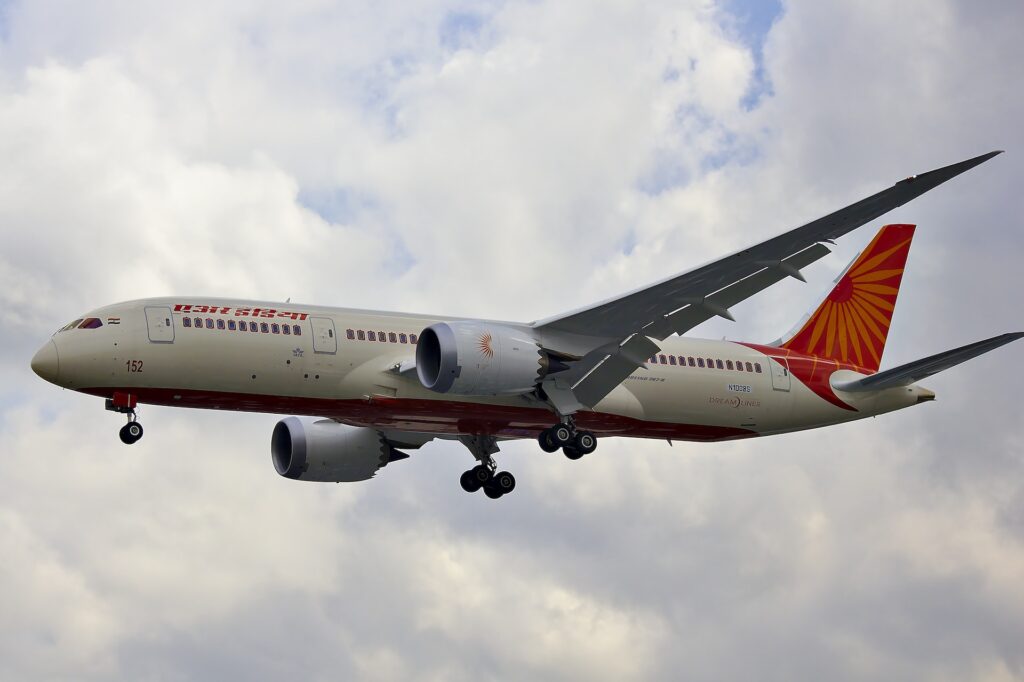We must have our tickets, passports, and other valid forms of identification for domestic flights in India to obtain our boarding passes quickly.

It is a travel guide for traveling in India, and it covers all fundamental details about the documents we may need to travel, which will assist passengers in traveling effectively and safely by avoiding any hassle. Also, this article will answer a common question that most travelers have: “Do I need to have a passport for domestic flights in India?”
Also Read: What Document Require Kashmir Trip, Ultimate Checklist
Air India, the country’s national flag carrier, amalgamated with Indian Airlines in 2007 and will become the third-largest civil aviation market in the world by 2021. JRD TATA’s significant contributions to the sector led to his emergence as the father of domestic flying in India.
Traveling within India is inexpensive, incurs fewer costs, and is more accessible via air because it takes less time and requires no special documentation, such as a visa or official documents. Additionally, domestic travel increases the country’s GDP and benefits economic expansion, and national tours promote Indian history and culture.
Also Read: 25 Safety Tips for Solo Female Travelers from the Experts
1. Do I need a passport for domestic flights in India?
Because the flight does not cross international borders or go through immigration, we do not require a passport for domestic flights within India. However, we still need to have a current photo ID. Thus, many individuals choose to use their passports in addition to their photo ID cards to ensure everything runs smoothly.
The government of India issues photo identification documents that are valid. It consists of a driver’s license, a photo ID issued by the state, a passport, an Adhar card, a PAN card, and a voter ID card.
With identical paperwork, we can avoid difficulties at the airport because security would prevent us from entering and may even take legal action. Therefore, we can utilize our Adhar card or any other soft copy of identity proof stored on our phones in this kind of emergency. We must visit the TSA office to resolve the problem, and they will use information from a publicly accessible database by asking us a few questions to verify our identification.
Also read: What are the risks of travelling alone?
2. What other documents must I carry for domestic flights in India?
i. E-ticket or boarding pass.
Customers purchase the e-ticket online from specific websites that airlines supply. The electronic ticket is sent to them as a PDF after the reservation is confirmed or is kept in an online ticketing database. The customer’s name, flight number, departure time, seat number, and other purchase-related information are listed on this ticket.
We must go through the screening process when we get to the airport. After TSA screening, a boarding permit is given for approaching the airline.
E-tickets have numerous benefits, such as being simple to obtain, having a low risk of fraud, and being simple to update. Still, they also have disadvantages, such as the inability to select your chosen seat. There is a slim chance that your money will be refunded if you decide against traveling, and purchasing online could result in us paying a high fare.
Also Read: Is it safe to travel to Kashmir in April with a 2-year-old?
ii. COVID-19 test and certificate.
Due to a few mild cases of COVID-19, RT and PCR testing are not necessary for domestic flights. However, security still takes precautions, such as making mask use essential upon arriving at the airport and keeping a specific distance between passengers. Thermal screening can also be done for domestic flights. We must be prepared if any airline requests that we take the COVID-19 test.
We must submit a self-declaration form detailing our health and health information from the Aarogya Setu app to affirm that we are fit to fly.
The Delhi government has set the cost of the COVID-19 test in private laboratories at INR 300 as of January 20. However, for RT-PCR, INR 500 is the maximum rate for sample collection from home. We will conduct a RAT test in INR 100, so it is essential for our safety that we receive a current COVID-19 report before flying.
Also Read: Top 20 Most Essential Items on the Womens Packing List for Summer Vacation
iii. Special permits and permissions
Permit for Protective Areas Ladakh, also known as PAP, is a document the government issues to international visitors to allow access to restricted areas. It is used to access locations close to LOCs and LACs. There is a time limit on this permission. Non-Indians must have a Restricted Area Permit, or RAP, to enter certain areas close to the Andaman and Nicobar Islands Union territory.
PAP permits are available for 30 days and cost $50 per person. However, RAP documents are given to foreign visitors who arrive in groups of two or more. We can enter and exit from specific regions with these government-issued permissions. To protect their safety and safely depart the area once their permit has expired, tourists should abide by the rules listed on it.
(Source: https://www.lostwithpurpose.com/pap-guhawati/)
Also Read: Is it safe for females to travel alone?
8 Common Mistakes to Avoid When Flying Within India
There are several typical errors that, if made, might ruin our trip, so we should be aware of them and take care to avoid them.
First and foremost, to safely enter our aircraft, we should ensure we have a valid ID with a photo when we travel by air.
Because most of the time, flights are unavailable in an emergency, we should have to book our tickets in advance and obtain their prints to receive our boarding passes on time.
To prevent any issues, we must update our self-declaration health form and screen our blood sample for COVID-19 before 24 hours of our travel to confirm that we are physically fit for flight.
We should prevent COVID-19 because airports are public spaces. Thus, we should wear masks, keep our distance from others, and occasionally sanitize our hands.
Also Read: Solo travel packing list female
We must obtain special licenses from their suppliers in advance and follow the state’s procedures to visit locations the Indian government has prohibited access to. Additionally, we intend to travel to uncharted territory. In that case, we must hire a specialized trainer and guide who can lead us and give us comprehensive knowledge about each destination.
Because domestic flights are only permitted to carry one handbag and one piece of luggage, customers must pack their bags with the necessary items.
Because different places have varied weather patterns, travelers must research the local climate and weather updates before setting off for their destinations and carrying clothes appropriate for the local climate.
Also Read: At what age can a girl travel alone?
Additionally, we must reserve the preferred lodging and dining establishment after researching pricing online. Doing this lets us compare prices for various lodging options simultaneously and save time.
Final Analysis
So, if you are still confused regarding the question, “Do I need to have a passport for domestic flights in India?” It strongly emphasizes that you should have all the necessary documentation before taking a domestic aircraft to India. Tourists must be well-informed before visiting specific locations, pack the necessary items to ensure they can enjoy their trip, and select a dependable airline to avoid any hassles. Additionally, travelers must confirm their reservations for their locations because hotels and resorts are often fully booked yet need to update their websites, causing tourists to experience difficulties. We have a detailed itinerary for our vacation to see several locations before we leave.
Thank you for carefully reading this booklet. We hope it will be helpful for your next trip to India. Stay tuned for more adventure guides from Salam Travellers.




